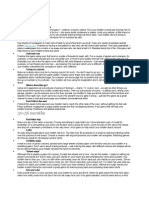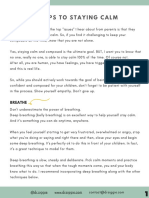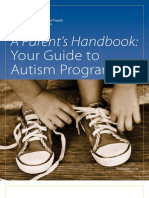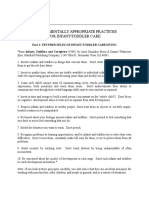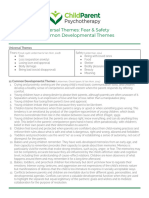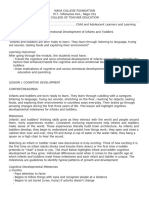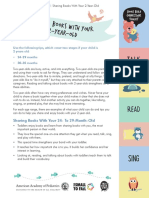0% found this document useful (0 votes)
243 views4 pagesTemper
Temper tantrums are common for children between ages 2-4 and can be caused by frustration, tiredness, hunger, or a desire for attention. Signs of a tantrum include crying, screaming, head banging, and kicking. Parents can help prevent tantrums by keeping routines, using positive reinforcement, removing temptations, and addressing needs promptly. During a tantrum, the caregiver should remain calm, keep the child safe, and ignore the tantrum until it subsides.
Uploaded by
Dan Rey OsiasCopyright
© © All Rights Reserved
We take content rights seriously. If you suspect this is your content, claim it here.
Available Formats
Download as PDF, TXT or read online on Scribd
0% found this document useful (0 votes)
243 views4 pagesTemper
Temper tantrums are common for children between ages 2-4 and can be caused by frustration, tiredness, hunger, or a desire for attention. Signs of a tantrum include crying, screaming, head banging, and kicking. Parents can help prevent tantrums by keeping routines, using positive reinforcement, removing temptations, and addressing needs promptly. During a tantrum, the caregiver should remain calm, keep the child safe, and ignore the tantrum until it subsides.
Uploaded by
Dan Rey OsiasCopyright
© © All Rights Reserved
We take content rights seriously. If you suspect this is your content, claim it here.
Available Formats
Download as PDF, TXT or read online on Scribd
/ 4

